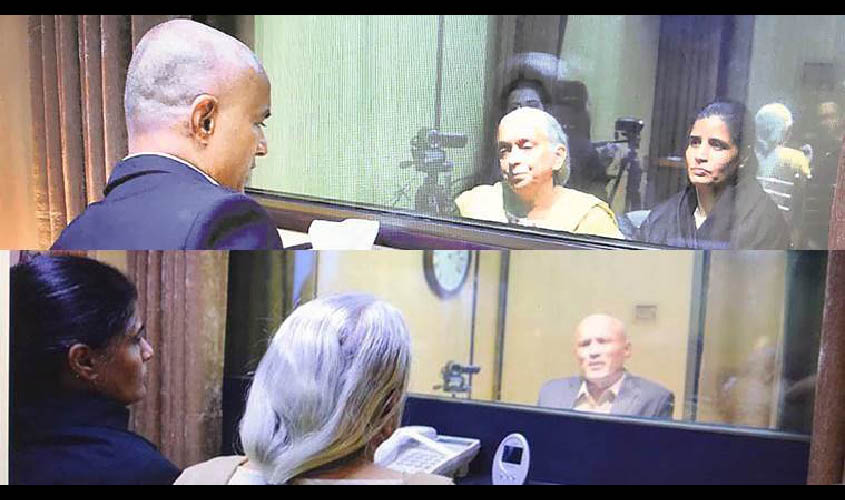New Delhi: India has put up a strong case for the release of Kulbhushan Jadhav at the International Court of Justice (ICJ) by questioning the credibility of Pakistani military courts which have already hanged 48 civilians and sentenced 161 civilians to death within two years.
“In the two years since military courts were initially empowered to try civilians in connection with purported terrorism-related offences, they have convicted at least 274 civilians, possibly including children, in secret proceedings. They have sentenced 161 civilians while 48 civilians have been hanged after trials that are grossly unfair,” senior advocate Harish Salve argued before the ICJ at The Hague in Netherlands during its hearings last month.
The ICJ, which is hearing the case after Jadhav was sentenced to death by a Pakistani military court, is likely to deliver its verdict on 8 July.
At least 159 out of 168 civilians (95%), whose convictions have been publicly acknowledged by the military, have allegedly “confessed” to the charges, the international court was informed by the Indian team. In the absence of adequate safeguards and independent review mechanisms in military proceedings, “this very high rate of ‘confessions’ raises serious questions about their voluntariness, including with respect to the infliction of torture and other ill-treatment to extract confessions,” it submitted.
It was also brought to the notice of the court that Pakistani military courts are not independent and the proceedings before them fall “far short of national and international fair trial standards.”
“Judges of military courts are military officers who are a part of the executive branch of the state and do not enjoy independence from the military hierarchy. They are not required to have judicial or legal training, or even a law degree, and do not enjoy any security of tenure, which are prerequisites of judicial competence and independence,” the Indian side argued.
Interestingly, working of the military courts in Pakistan has been censured by the European Parliament. In a resolution of 15 June 2017, the European Parliament said that it “deplores the use in Pakistan of military courts that hold hearings in secret and have civilian jurisdiction; insists that the Pakistani authorities grant access to international observers and human rights organisations for purposes of monitoring the use of military courts; called also for an immediate and transparent transition to independent civilian courts, in line with international standards on judicial proceedings; underscores that third country nationals brought to trial must be allowed access to consular services and protections.”
Talking about the above mentioned cases of conviction by the Pakistani military courts, India said, “The government and military authorities have failed to make public information about the time and place of the trials, the specific charges and evidence against the defendants as well as the judgments of military courts, including the essential findings, legal reasoning and evidence on which the convictions were based.”
India has submitted that Pakistan’s conduct in not allowing consular access to Jadhav right from the time of his detention to the time of his conviction and thereafter, is a “gross violation of Article 36 of the Vienna Convention”. India also submitted that the military courts of Pakistan cannot command the confidence of the international court and should not be sanctified by a direction to them to review and reconsider the case.
For these reasons, India seeks annulment of Jadhav’s conviction and a direction that he be “released forthwith”.
India had approached the ICJ in May 2017 after Pakistan tried Jadhav in a military court which sentenced him to death on 10 April, after informing India about his arrest on 26 March. A 10-member Bench of the ICJ on 18 May 2017 had restrained Pakistan from executing Jadhav till adjudication of the case. Interestingly, this is the fourth time India and Pakistan are fighting it out in the ICJ. Before that the two countries had approached ICJ in 1971, 1973 and 1999.
Sources said India has sufficient evidence to prove that Jadhav was kidnapped from Iran and was illegally tried in a sham court without being provided any consular access despite India putting in as many as 14 requests to meet him. Pakistan, on the other hand, alleged that Jadhav was an India spy sent inside Pakistan on a special mission to carry out subversive activities.

